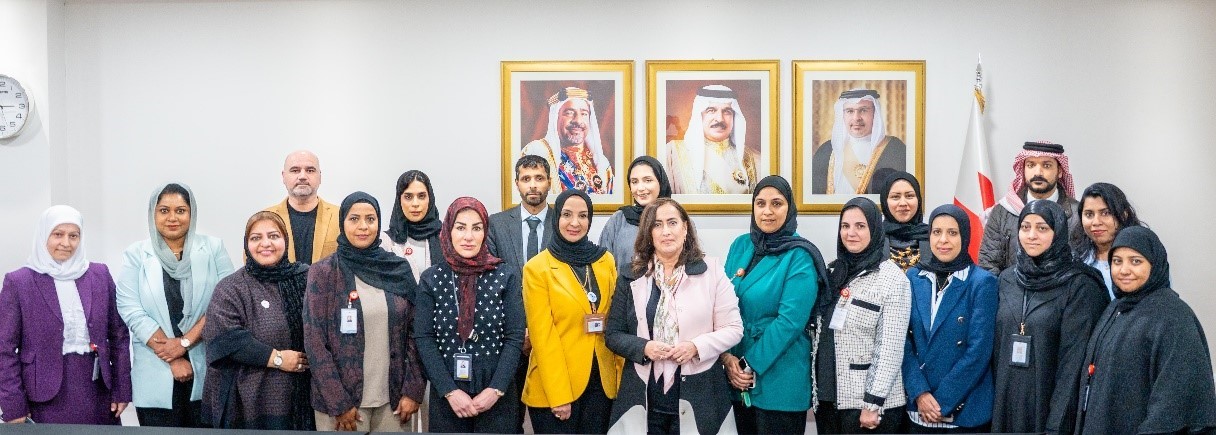_1.png?width=800&auto=format)
Member Spotlight: Salmaniya Medical Complex
Salmaniya Medical Complex in Bahrain, a leading government hospital recognised for its Centres of Excellence and commitment to world-class, patient-centred care.
As ACHSI continues to celebrate healthcare excellence worldwide, we share outstanding achievements among our Members. This month, we are proud to highlight Salmaniya Medical Complex, recognised for its prestigious Centre of Excellence (CoE) for Neuroscience and Emergency Medicine, and share insights into their journey towards ACHSI accreditation.
Founded in 1957, Salmaniya Medical Complex is the largest tertiary hospital in Bahrain, dedicated to providing high quality, accurate and timely care through working in partnership with patients and stakeholders.
1. Tell us a little bit about Salmaniya Medical Complex.
Salmaniya Medical Complex is the largest tertiary government hospital in Bahrain, serving both Bahraini citizens and residents. It boasts a capacity of 1,200 beds and offers comprehensive care across all medical and surgical specialties, including emergency services. The hospital is also the leading teaching and research centre and is recognised for its Centres of Excellence in Neuroscience and Emergency Medicine. Additionally, Salmaniya Medical Complex hosts the Hereditary Blood Disorder Centre, the first of its kind in the region, providing specialised care for the large population of patients affected by sickle cell disease.
2. How many average staff do you have working there, and how many clients?
Salmaniya Medical Complex employs over 5,200 staff members, including physicians, nurses, allied health professionals, and administrators, who serve both the hospital and its affiliated government healthcare facilities. The hospital manages an average of 1,500 emergency department visits daily and conducts over 100 surgical procedures each day. Outpatient services cater to approximately 2,500 patients per day, while inpatient admissions range from 150 to 200. The maternity department averages 20 deliveries per day.
3. What was the process like preparing for the hospital for international accreditation?
After achieving national accreditation, the hospital aimed for international accreditation to enhance care quality and align with global standards. This goal was driven by a commitment to provide world-class services, improve patient outcomes, and promote continuous improvement. Preparing for international accreditation involved reviewing and updating clinical practices, safety protocols, and operational procedures. Our team collaborated across departments to implement evidence-based guidelines, improve staff training, and strengthen quality assurance systems, ensuring compliance with rigorous international standards through continuous monitoring and patient-centred care.

4. How was the experience? Was there anything in particular you learnt?
The experience of preparing for and achieving international accreditation was both challenging and rewarding. It required a comprehensive evaluation of our practices and a commitment to continuous improvement. One key lesson we learned was the importance of fostering a culture of collaboration across all departments, as accreditation required alignment between clinical, administrative, and support services. Additionally, we gained a deeper understanding of the critical role that data-driven decision-making and rigorous quality control play in maintaining high standards of patient care. Overall, the process strengthened our focus on safety, efficiency, and patient satisfaction.
5. How did you regard what the Quality Partner brought to your team and organisation?
The partnership played a crucial role in guiding our team throughout the accreditation process. Their expertise and experience provided valuable insights into best practices, helping us identify areas for improvement and ensuring that we met international standards. They facilitated a structured approach to quality management, offering support in training, documentation, and process optimisation. Their objective perspective was instrumental in highlighting strengths and addressing gaps, ultimately empowering our team to enhance both operational efficiency and patient care. Their contribution significantly accelerated our journey toward achieving accreditation and maintaining a culture of continuous improvement.
6. Do you have any advice for other Members going through these programs?
Our advice for others going through healthcare accreditation is to ensure strong leadership and cross-departmental collaboration. Focus on continuous training, data-driven decision-making, and regular audits to stay aligned with standards. Treat accreditation as an ongoing commitment to improving patient care and remain persistent and detail-oriented throughout the process.
7. What does International accreditation mean to you and your organisation?
International accreditation for a hospital signifies the recognition of the facility's commitment to meeting global standards of healthcare quality and patient safety. It assures patients and stakeholders that the hospital adheres to rigorous, evidence-based practices in clinical care, administration, and operational processes. For our organisation, it represents a continuous commitment to excellence, fostering trust, improving patient outcomes, and enhancing our reputation within the healthcare industry.
We thank Salmaniya Medical Complex for sharing their insights and commend their dedication to excellence in patient care and continuous improvement.